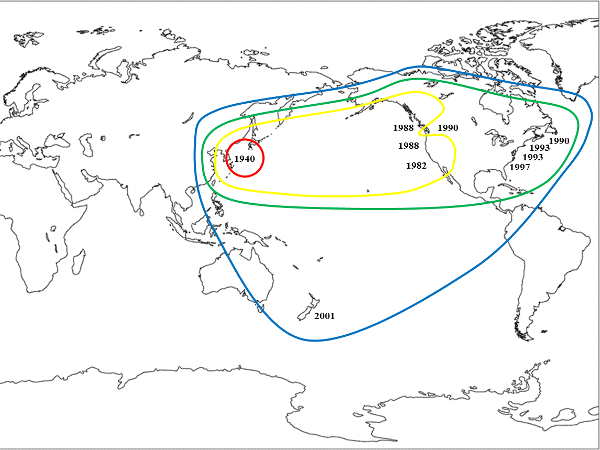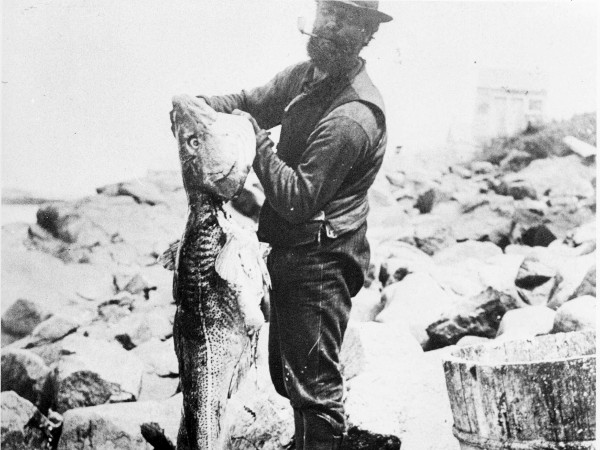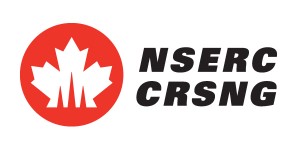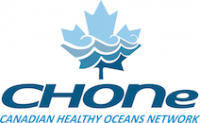Projects
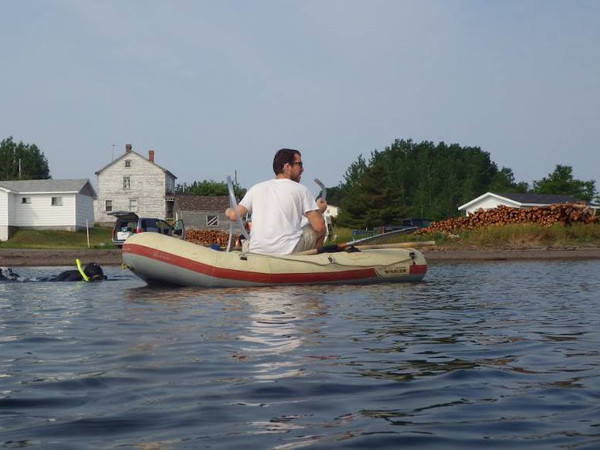
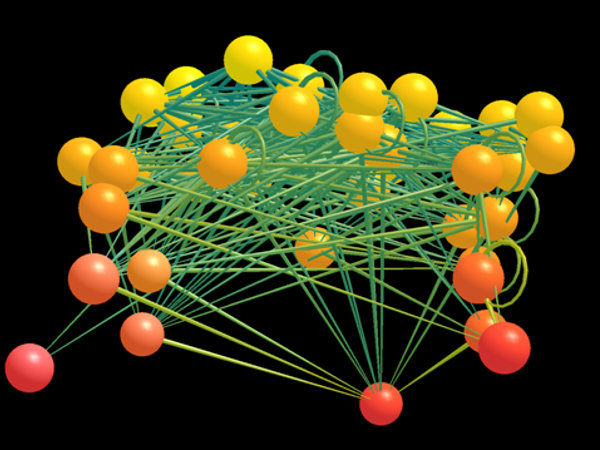
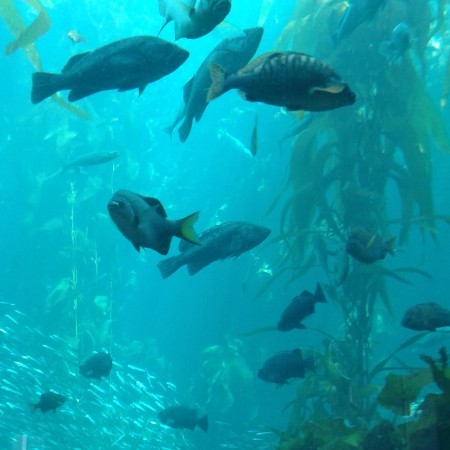
Long-term changes in coastal ecosystem structure and functions
Coastal ecosystems are important structural and functional components of the ocean and provide essential services to human well-being, including seafood production, nutrient cycling, recreation and coastal protection. Yet they have been deeply transformed over historical time scales and continue to be altered by multiple human activities. The goal of this research program is to reconstruct long-term changes in marine species and analyze their consequences for ecosystem structure, functions and services. To do so, we use a combination of historical research, field surveys, lab experiments, data synthesis, and ecosystem modeling.
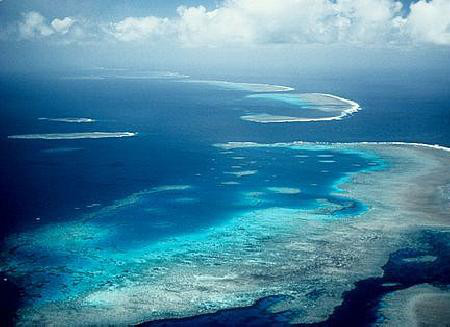
Fisheries and Marine Ecosystems Model Inter-comparison Project
FISH-MIP is the Fisheries and Marine Ecosystem Sector of the Inter-Sectoral Impact Model Inter-comparison Project (ISI-MIP), based at the Potsdam Institute for Climate Impact Research (PIK) in Germany. FISH-MIP is an international network of global and regional marine ecosystem modellers aiming to predict the impacts of climate change on marine fisheries and ecosystems.
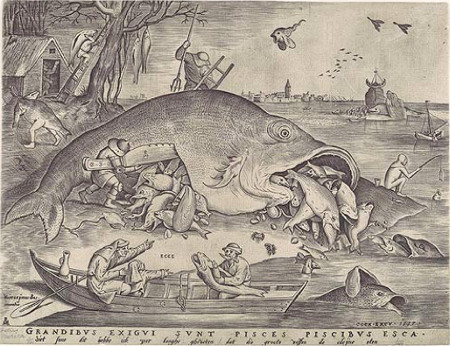
Oceans Past Initiative
The Oceans Past Initiative (OPI) is a global research network for marine historical research. Our goal is to enhance knowledge and understanding of how the diversity, distribution and abundance of marine life in the world’s oceans have changed over the long term to better indicate future changes and possibilities. OPI has grown from the now concluded History of Marine Animal Populations (HMAP) which was part of the Census of Marine Life Programme. Every 2-3 years, OPI organises an Oceans Past Conference where anyone interested in the history of humankind’s interactions with life in the oceans can meet in person to present and debate the implications of the latest research in marine environmental history and historical marine ecology.
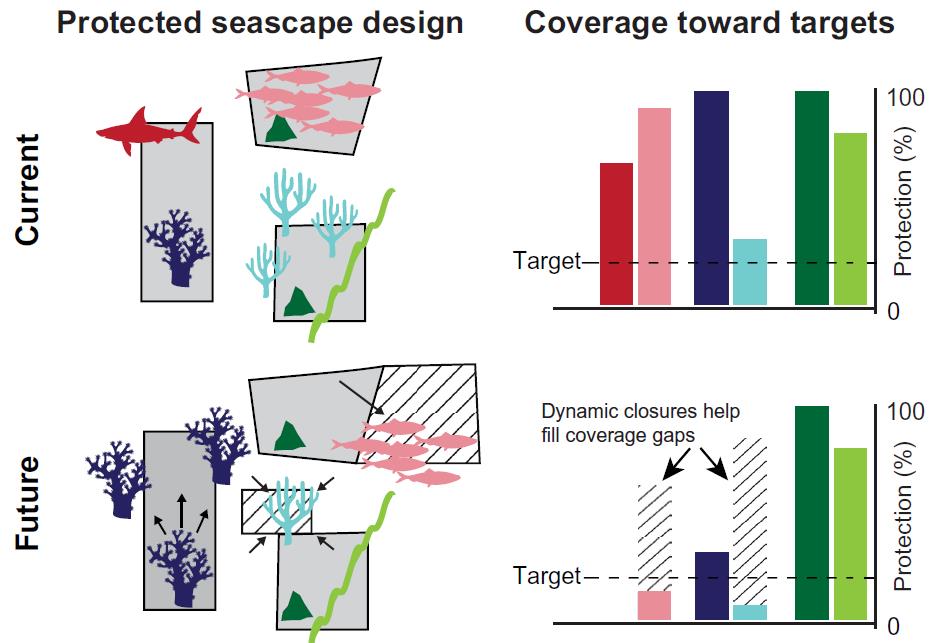
Marine Future Proofing Project – Ocean Frontier Institute
Marine Protected Area (MPA) networks offer an important strategy that forms a growing aspect of ocean governance in Canada and elsewhere. MPAs are often designed explicitly to protect biodiversity, sustain or enhance productivity and critical habitat, maintain other functions and ocean health, and provide insurance against sudden or drastic changes in exploited resources. The planning process, however, is not designed to incorporate ongoing and future changes in environmental conditions. This project aims to complement existing planning efforts to help ‘future-proof’ MPA networks and other spatial management tools such as fisheries closures and critical habitat designations. This project will integrate observational data on shifting habitats and ecosystems with real-time remote sensing, animal movement, and vessel tracking data to understand and model changes in ocean conditions, biological resources and human use patterns relevant to MPAs.
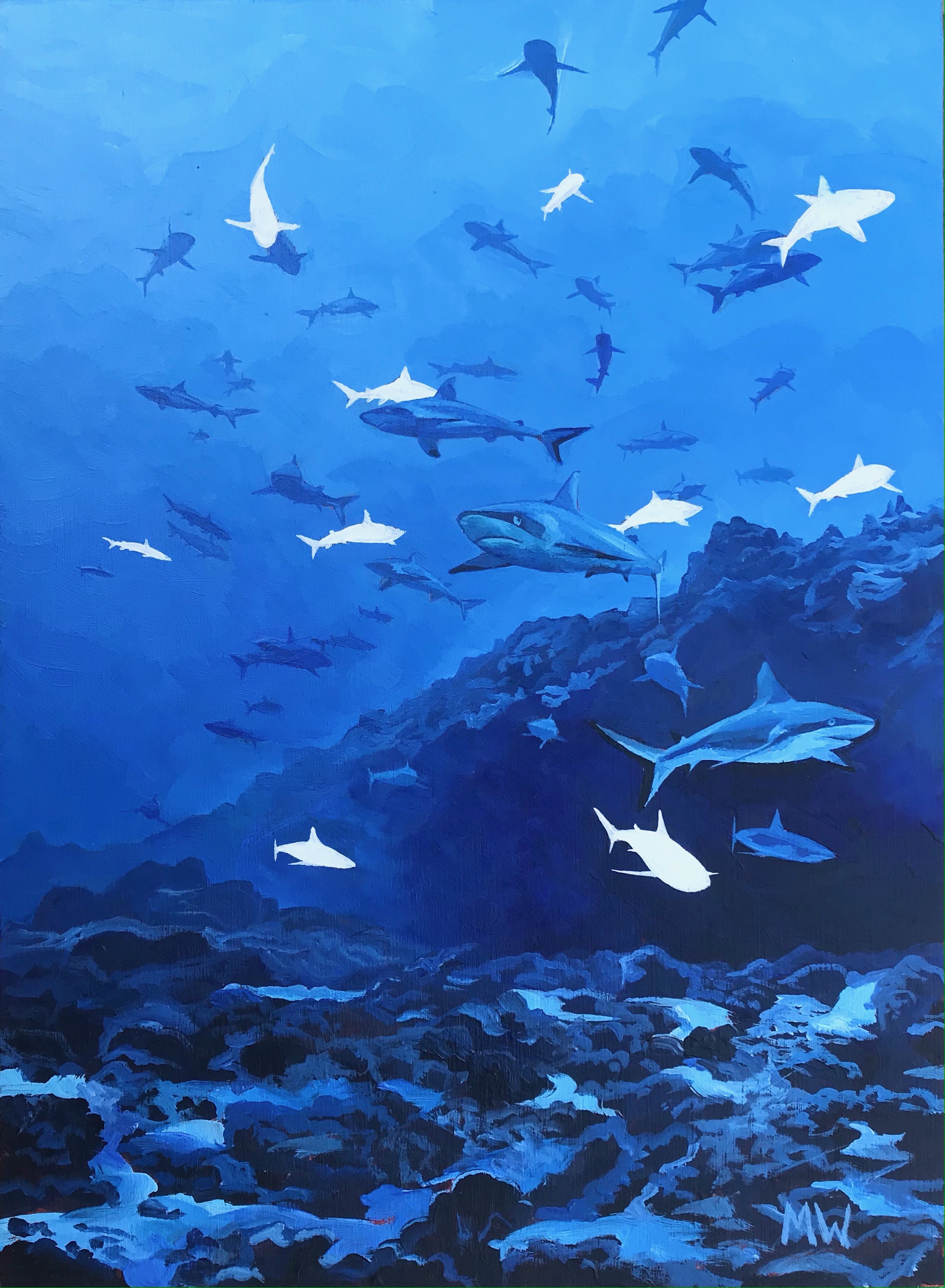
The Use of Visuals in Marine Science Outreach
Visuals are a valuable tool in science communication, including education and outreach. They can clarify complex concepts, create two-way dialogue, and generate an emotional response. Science-art collaborations have been more prevalent in recent years, particularly in the marine science field. However, it is often difficult to explain how or why visuals are effective communication tools. Our research aims to address these issues by using a combination of historical and quantitative research approaches. We aim to examine the different roles and values of marine illustrations throughout history, and how these can inform the present use of visuals in science communication. We also aim to compare people’s responses and reactions to different media types, to evaluate how visuals can be tailored to reach specific audiences. This line of research will inform the use of visuals as effective tools in marine education and outreach.
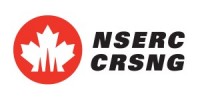
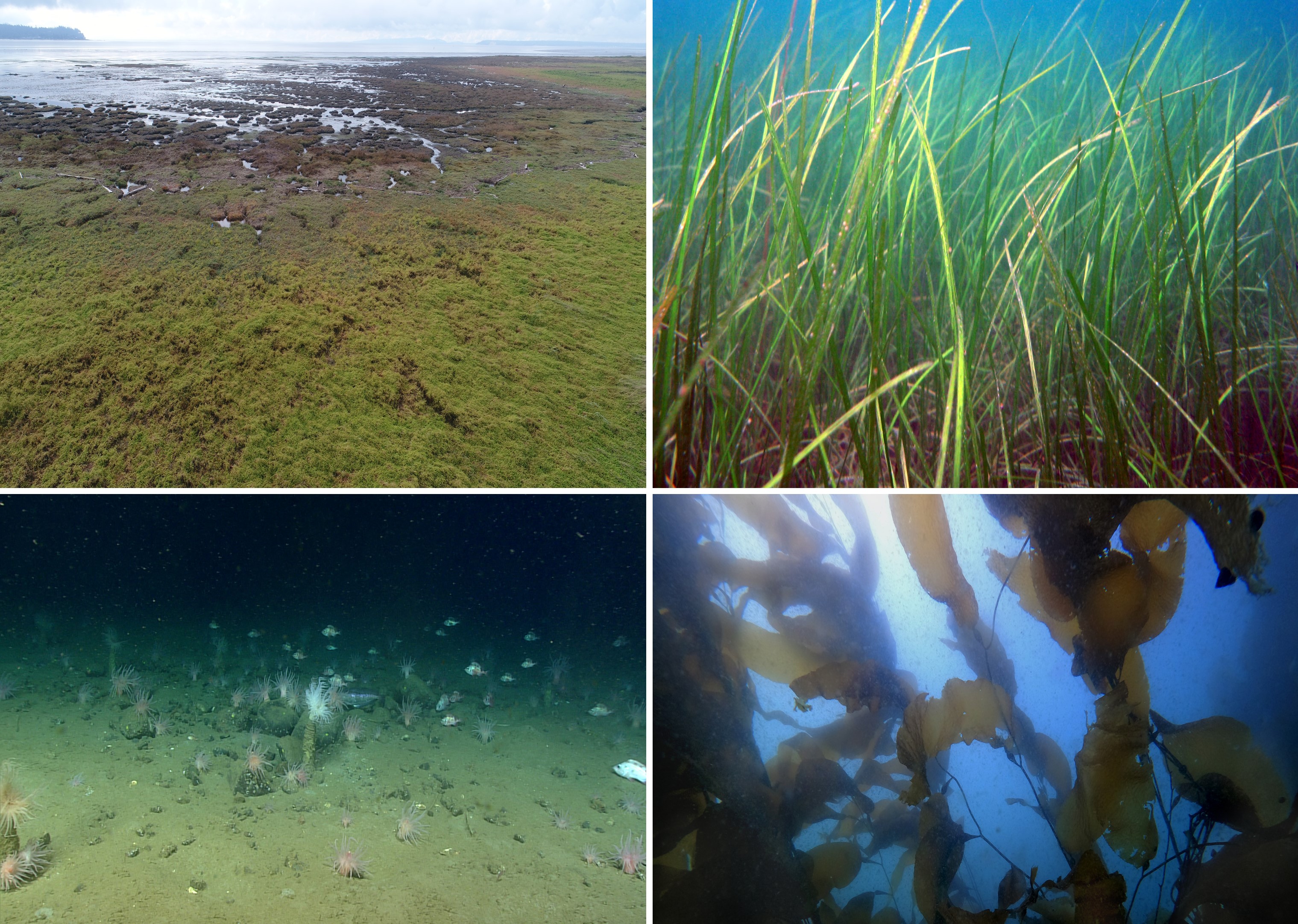
Blue Carbon Canada
This new NSERC Alliance research program, led by Julia K. Baum together with 25 collaborators from 8 universities and 7 partner organizations, aims to evaluate the Current and Future Capacity for Natural Climate Solutions in Canada’s Oceans. Climate change is rapidly altering our natural ecosystems and solutions are urgently required to limit further warming. Coastal ecosystems, including salt marshes, seagrass meadows, kelp forests, and marine soft sediments are increasingly recognized as marine carbon reservoirs, also known as blue carbon. Our research will produce a nationwide assessment of the capacity for Canada’s oceans to serve as natural climate solutions. This project is endorsed by the Intergovernmental Oceanographic Commission (IOC) of UNESCO as part of the UN Decade of Ocean Science for Sustainable Development
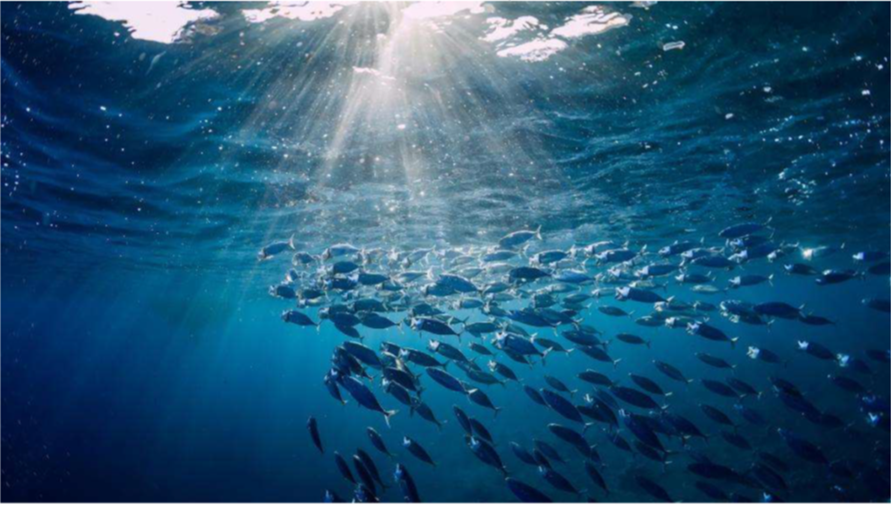
Assessing ocean warming effects on shifting fisheries catches in the NW Atlantic.
Climate change is already affecting marine ecosystems and shifting species from their historical ranges into previously unsuitable and sometimes poorly protected environments. The Northwest Atlantic is an ideal region to study ocean change because of its more rapid rate of warming. This project aims to assess climate change effects as reflected in fisheries catches in the NW Atlantic, including both Canadian and US waters. It ultimately aims to inform future fisheries management strategies about regional and transboundary shifts in species and catches, so that management can adequately respond and adapt to the challenges of accelerated environmental and ecosystem change.
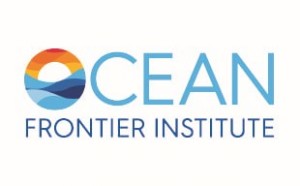
Future proofing marine conservation planning in the North-West Atlantic Ocean
This project focuses on the analysis of future ecosystem changes within currently established and proposed marine conservation areas in the North-West Atlantic Ocean under climate change and the evaluation of gaps and opportunities for additional areas to achieve comprehensive conservation planning for climate-change adaptation. We will employ marine ecosystem projections provided by Fish-MIP and regional climate and ecological models in collaboration with the Ocean Frontier Institute, Memorial University and Fisheries and Oceans Canada. Ultimately, my proposed research will help moving towards future proofing marine biodiversity protection and protected area networks in Canada under climate change.
FOCUS – Food security and sustained coastal livelihoods through linking land and ocean
Sustainable food production is a central element of a future bioeconomy. However, many food production systems are under pressure from intensive human use and global environmental changes. FOCUS aims to quantify how climate change will affect food production, food security and rural livelihoods around the world. This project’s goal is to globally assess the economic effects of climate change on marine ecosystem services (fisheries, and aquaculture) and agriculture in coastal areas around the world. FOCUS will couple a global agricultural sector and land-use model in combination with a new global bio-economic fisheries model to quantify these effects for the coastal areas around the world.
COD-REMAP – Climate and ocean dynamics informing resource management and adaptation policy
The abundance and distribution of fish species are intrinsically linked to changing ocean conditions such as water temperatures and nutrient regimes. They are also profoundly affected by human activities, most prominently fisheries. This project will generate quantitative reconstructions of ocean dynamics vis-à-vis fish abundances in the Northwest Atlantic ecosystem during the last 2,000 years, covering the pre-Colonial and post-European settlement world. Records of changing ocean environmental conditions derived from sedimentary, coral and mollusk records will be combined with records of variations in fish abundance, size, and community structure from microfossils, archaeological and historical data. These data sets will be compared with coupled climate biogeochemistry-ecosystem-fishing hindcast models. Results will provide reference points on a shifting baseline for climate change adaptation policy and ecosystem management.

Past, present and future of marine resources and their supporting ecosystems
One of today’s greatest environmental concerns is the critical state and uncertain future of marine resources and their supporting ecosystems. Oceans have supported abundant life and intense human use for millennia. However, in a time of fisheries collapses, water pollution, and rapid climate change it is unclear whether people around the world will be able to enjoy healthy seafood, swim in clean coastal waters, and encounter diverse ocean wildlife in the future. As the Canada Research Chair in Marine Renewable Resources from 2006-2016, Heike’s research aimed to unravel the underlying history and causes of the current crisis and to predict its consequences into the future.
Link: http://www.chairs-chaires.gc.ca/chairholders-titulaires/profile-eng.aspx?profileId=2067
Conservation Strategies in Canada’s Changing Oceans (CHONe II)
Human need for ocean resources will increase in coming decades, accelerated by economic drivers. Canada must develop scientific knowledge to identify risks and advise on policies to ensure we sustain ocean health, function, and services. The NSERC Canadian Healthy Oceans Network (CHONe I), a partnership of 15 universities and DFO, delivered marine ecosystem-level science on biodiversity and ecosystem functioning in Canada’s three oceans over time and geography. Our new research network on Conservation Strategies in Canada’s Changing Oceans (CHONe II) will apply the results gained to analyze how different management tools and strategies address key ecosystem and biological objectives in Canada’s changing oceans and what measurable benefits and limitations emerge from specific management actions to offset multiple impacts.
Ecosystem effects of invertebrate fisheries
Invertebrate fisheries have rapidly increased and expanded over the past 50 years, and are now important players in global seafood markets and trade. However, for many species there is little assessment and management in place, the ecosystem consequences of their fisheries are poorly understood. This project aimed to evaluate the consequences of invertebrate fisheries on other species in the food web and the structure and functioning of marine ecosystems. We also assessed the trade-offs between invertebrate catches and ecosystem impacts to inform ecosystem-based fisheries management.
Link: http://www.lenfestocean.org/en/research-projects/ecosystem-effects-of-invertebrate-fisheries
Extinctions in Ancient and Modern Seas
This working group at the National Evolutionary Synthesis Center (NCESCent) in Durham, NC brought together paleontologists, archaeologists, historical and modern ecologists to compare, analyze and predict marine extinctions and extinction risk in the fossil, historical and modern record. The group was coordinated by Paul Harnik, Rowan Lockwood, and Seth Finnigan.
Future of Marine Animal Populations (FMAP)
FMAP was one of seventeen constituent projects of the Census of Marine Life, a ten-year international research effort involving 2,700 scientists which sought to assess and explain past, present, and future diversity, distribution, and abundance of marine life. FMAP scientists worked towards describing and synthesizing globally changing patterns of species abundance, distribution, and diversity, and modelled the effects of fishing, climate change and other key variables on those patterns. This work was done across ocean realms and with an emphasis on understanding past changes and predicting future scenarios.
History of Marine Animal Populations (HMAP)
As part of the History of Marine Animal Populations program of the Census of Marine Life, we studied historical examples of population and ecosystem recoveries around the world. Also, in an interdisciplinary effort with archaeologists, historians, and ecologists, we reconstructed the ecological history of human-induced and natural changes in the Wadden Sea, southern North Sea, and the consequences of these changes on diversity, food-web structure, and ecosystem functions and services. HMAP has now grown into the Oceans Past Initiative (OPI; http://hmap.sea.ee/).
Mediterranean Sharks Project
The Mediterranean Shark Project was concerned with the decline of shark populations in the Mediterranean Sea over the past two centuries, and the consequences of this loss for the Mediterranean ecosystem. We assessed the magnitude of population declines and current status of sharks in the Mediterranean Sea using a variety of data sources and analytical methods.
Historic Reconstruction Project
The Historic Reconstruction Project was concerned with the long-term history of human-induced changes in estuaries and coastal regions in the United States. We used data from paleontology, archaeology, history, fisheries science, and ecology in order to reconstruct historical baselines for coastal fisheries and their supporting ecosystems, and quantify the magnitude of degradation since pre-Columbian times.



